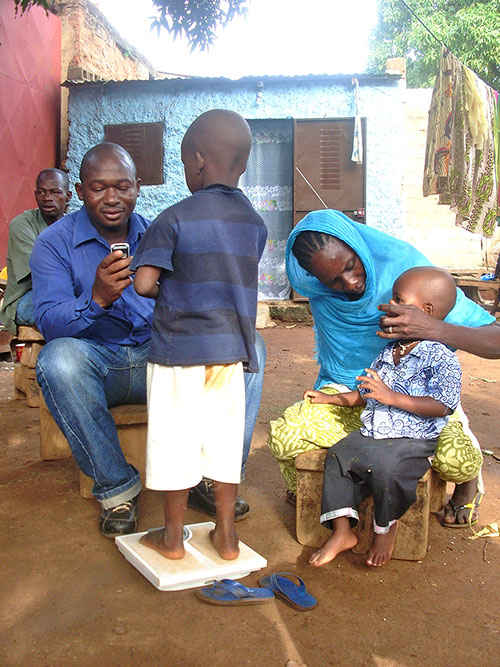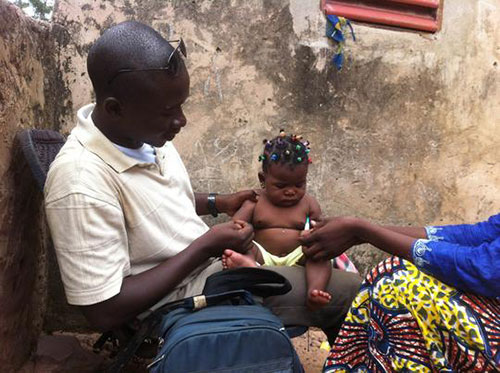
PROVIDENCE, R.I. [Brown University] —Free or subsidized health care helps families with young children meet World Health Organization (WHO) guidelines for medical care, according to a new study.
The study — authored by Anja Sautmann, assistant professor of economics at Brown University, with Mark Dean, assistant professor of economics at Columbia University, and Brown graduate student Samuel Brown — tested the theory that subsidies for health care are likely to cause overuse of medical care or unnecessary clinic visits that waste precious medical resources.
“The use — and usefulness — of primary health care depends crucially on the health status of the child in question,” Sautmann said. “Putting it drastically, giving a group of children additional medical care could mean we that we are saving lives, or that we are wasting resources on, and possibly even endangering, completely healthy children. When studying policies that aim to change the demand for health care, we therefore have to take the child’s underlying health into account. This requires new approaches to collecting data.”
For the working paper, “Subsidies, Information and the Timing of Children’s Health Care in Mali,” the authors followed 1,544 children over nine weeks and looked at the impact of subsidies on families’ decisions to seek care at the time it was needed, as well as the role of health care workers who visit families and provide them with important health information.
Sautmann and her co-authors, who were funded by a Development Frontiers Award from the Economic and Social Research Council and the Department for International Development (UK), worked with the non-governmental organizations Mali Health and Innovations for Poverty Action. Under Mali Health’s Action for Health program, children were provided with either free health care for a set of common illnesses, or biweekly visits from community health workers, or both. Innovations for Poverty Action provided the in-country support to collect detailed health diary data for all study children.
The community health workers supplied medical information intended to help parents discern the seriousness of their children’s symptoms — such as coughing, fever, vomiting or inability to drink or breastfeed — and to understand when the parents should seek medical care.
The timing of care seeking, the authors wrote, is a crucial measure of efficient utilization of medical resources: “There may initially be a good chance that the child will get better without medical care, and only when symptoms persist it becomes likely that the child is suffering from a serious illness and will not recover on her own.”
Therefore, the researchers evaluated efficient use of medical care based on “not just if, but when the expense of a doctor visit is warranted,” Sautmann and her colleagues wrote.

Photo: Hamadoun Bocoum/IPA
Sautmann, Dean and Brown found that subsidies increase care seeking by over 250 percent, and they do so mostly for children who require that care, as defined by WHO guidelines, rather than for children who are not seriously ill.
Overuse of medical care, the authors found, is rare with or without the subsidy, while underuse remains relatively high even with free doctor visits.
The team found that subsidies reduce the cost of a doctor visit for a family by about 65 percent. But aside from the cost of the visit itself, barriers to accessing care include the expense of transporting a sick child to the doctor’s office and taking time away from work or household duties. As a result, even with the subsidy, about 70 percent of sick children who require medical care do not see a doctor. The program reduces that number from about 90 percent.
Surprisingly, Sautmann said, the data suggests that health workers contributed to families’ decisions to delay or avoid clinic visits.
“If families learn from the health workers how to tell when their child is not in immediate danger, and they disagree with the policymaker on the need for care in less severe cases of illness, underuse may actually increase,” the authors wrote.
In addition to countering the standard economic viewpoint that subsidies are likely to cause overuse and waste, the study gave the researchers information on more than 3,000 spells of illness and 500 doctor consultations over a nine-week period. This very detailed symptom information, Sautmann said, could be quite useful for epidemiological research and public health policy.